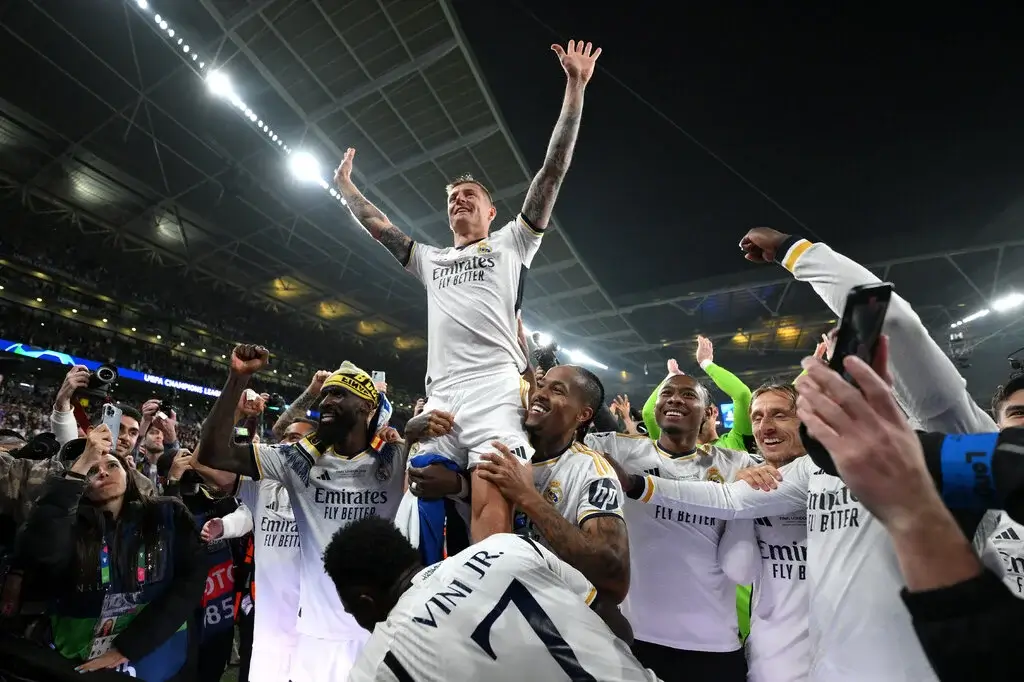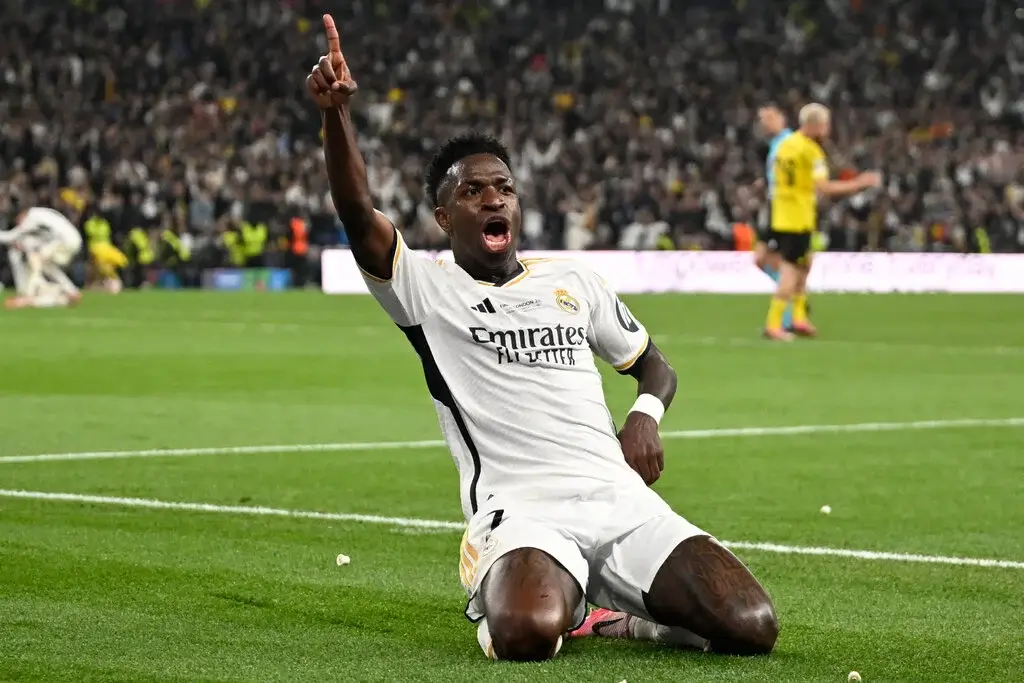You’ll Never Guess Who Really, Really Won the Champions League

By Rory Smith
LONDON — Vinícius Junior was grinning, laughing even, long before Real Madrid had anything very much to smile about. His team had, for more than an hour, seemed to be teetering on the brink of not just defeat but something worse: an embarrassment, a humiliation, and possibly the most unlikely defeat in the long, illustrious history of the Champions League.
Borussia Dortmund had traveled to Wembley more in hope than anything else: one of the best German teams up against the team that regards this competition essentially as its private property, a club that has not lost a major final in a generation, a side that has established itself over the last decade as Europe’s hegemon.
And then, for more than an hour, Dortmund had not just refused to wilt, but positively flourished. Karim Adeyemi should have scored. Niclas Füllkrug, the journeyman striker, hit the post. Against their better judgment — against all available evidence — the vast horde of Dortmund fans, the portable Yellow Wall, must have allowed themselves to start dreaming.

That smile, though: that smile told a story. The moment that generated it was not especially significant. Vinícius had simply pulled off a clever little trick to slip the ball between the legs of Julian Ryerson, Dortmund’s indefatigable right back. It did not lead to a goal, or even a chance. Vinícius was just pleased with his own ingenuity. In circumstances most would find beyond trying, he was, somehow, having fun.
Ten minutes later, of course, the inevitable had happened: Real Madrid had scored twice, through Dani Carvajal and Vinícius himself. Dortmund’s resistance had broken, followed in short order by its hearts. Real Madrid would, as everyone had known from the start, be champion of Europe for the 15th time. Nobody else has managed so much as half as many.
Perhaps it is only in retrospect that these moments attain a significance. That is how hindsight works, of course: It is the process of desperately trying to retrofit an explanation onto a sequence of essentially arbitrary events, to reverse-engineer some sort of order when all is chaos.
The pull, though, is strong. Vinícius smiling as he produced a party piece. Jude Bellingham holding his arms aloft several seconds before the Brazilian scored Real Madrid’s second. Toni Kroos, in his final game as a professional, celebrating as he was substituted, with a good 10 minutes still to play.

For most clubs, this would all come across as downright presumptuous, even hubristic. Such is the draw of what Joshua Kimmich, the Bayern Munich midfielder, referred to last month as Real Madrid’s “myth,” that it comes across instead as conviction, certainty, even clairvoyance. Real Madrid cannot tempt fate, not in the Champions League, because Real Madrid is the master of its own destiny.
If that sounds like romanticism — and it most definitely should, because it is — then it is hard to argue that it has a tangible impact. Real Madrid has now won this trophy six times in the last decade. Or, to put it another way, Real Madrid has claimed more European titles since 2014 than Barcelona has in its entire history.
It is a streak of dominance that is surpassed only once in almost 70 years of the tournament: In the first five years, when Real Madrid won every single edition. Now it will add Kylian Mbappé, the French superstar, and Endrick, the Brazilian sensation, to its resources over the summer, and possibly pick up Alphonso Davies, the Canada fullback, for good measure.
Those reinforcements will, obviously, bolster its chances of retaining the Champions League crown next year. But so, too, will the sight of Real’s celebrating with that trophy — its trophy — once again.
Real Madrid did not play especially well at Wembley, but then Real Madrid rarely plays well in finals. It was a minute away from losing in 2014, needed penalties in 2016, and was indebted to its goalkeeper, Thibaut Courtois in 2022. That should, in theory, be a weakness. With every passing year, it looks more and more like a strength. Even in its most challenging moments, Real Madrid can afford to smile. It leaves the suffering to everyone else.









